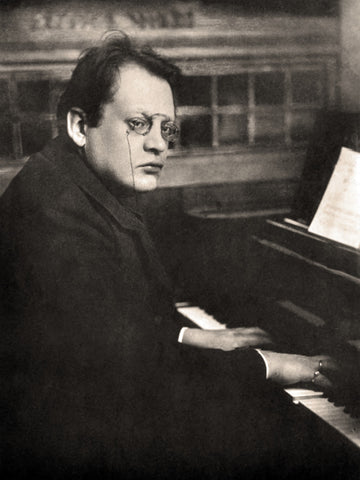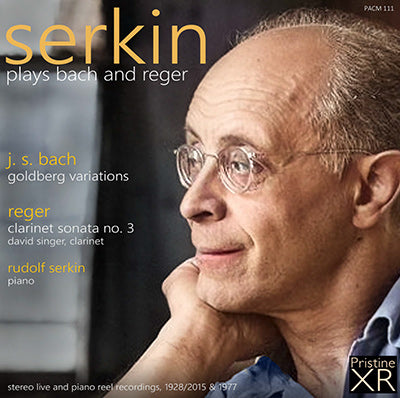Reger

Johann Baptist Joseph Maximilian Reger (19 March 1873 – 11 May 1916), commonly known as Max Reger, was a German composer, pianist, organist, conductor, and academic teacher. He worked as a concert pianist, as a musical director at the Leipzig University Church, as a professor at the Royal Conservatory in Leipzig, and as a music director at the court of Duke Georg II of Saxe-Meiningen.
Reger first composed mainly Lieder, chamber music, choral music and works for piano and organ. He later turned to orchestral compositions, such as the popular Variations and Fugue on a Theme by Mozart, and to works for choir and orchestra such as Gesang der Verklärten (1903), Der 100. Psalm (1909), Der Einsiedler and the Hebbel Requiem (both 1915).
Reger produced an enormous output in just over 25 years, nearly always in abstract forms. Few of his compositions are well known in the 21st century. Many of his works are fugues or in variation form, including what is probably his best-known orchestral work, the Variations and Fugue on a Theme by Mozart based on the opening theme of Mozart's Piano Sonata in A major, K. 331.
Reger wrote a large amount of music for organ, the most popular being his Fantasy and Fugue on BACH, Op. 46 and the Toccata and Fugue in D minor from the collection Op. 129. While a student under Hugo Riemann in Wiesbaden, Reger met the German organist, Karl Straube; they became friends and Straube premiered many of Reger's organ works, such as the Three chorale fantasias, Op. 52. Reger recorded some of his works on the Welte Philharmonic organ, including excerpt from 52 Chorale Preludes, Op. 67.
Reger was particularly attracted to the fugal form and created music in almost every genre, save for opera and the symphony (he did, however, compose a Sinfonietta, his op. 90). A similarly firm supporter of absolute music, he saw himself as being part of the tradition of Beethoven and Brahms. His work often combined the classical structures of these composers with the extended harmonies of Liszt and Wagner, to which he added the complex counterpoint of Bach. Reger's organ music, though also influenced by Liszt, was provoked by that tradition.
Some of the works for solo string instruments turn up often on recordings, though less regularly in recitals. His solo piano and two-piano music places him as a successor to Brahms in the central German tradition. He pursued intensively Brahms's continuous development and free modulation, whilst being rooted in Bach-influenced polyphony.
Reger was a prolific writer of vocal works, Lieder, works for mixed chorus, men's chorus and female chorus, and extended choral works with orchestra such as Der 100. Psalm and Requiem, a setting of a poem by Friedrich Hebbel, which Reger dedicated to the soldiers of World War I. He composed music to texts by poets such as Gabriele D'Annunzio, Otto Julius Bierbaum, Adelbert von Chamisso, Joseph von Eichendorff, Emanuel Geibel, Friedrich Hebbel, Nikolaus Lenau, Detlev von Liliencron, Friedrich Rückert and Ludwig Uhland. Reger assigned opus numbers to major works himself.
His works could be considered retrospective as they followed classical and baroque compositional techniques such as fugue and continuo. The influence of the latter can be heard in his chamber works which are deeply reflective and unconventional.

Reger
Johann Baptist Joseph Maximilian Reger (19 March 1873 – 11 May 1916), commonly known as Max Reger, was a German composer, pianist, organist, conductor, and academic teacher. He worked as a concert pianist, as a musical director at the Leipzig University Church, as a professor at the Royal Conservatory in Leipzig, and as a music director at the court of Duke Georg II of Saxe-Meiningen.
Reger first composed mainly Lieder, chamber music...
J. S. BACH Goldberg Variations
REGER Clarinet Sonata No. 3
Stereo piano roll and live recordings, 1928/2015 & 1977
Total duration: 66:53
David Singer, clarinet
Rudolf Serkin, piano
- Previous
- Page 2 of 2
-
Next

